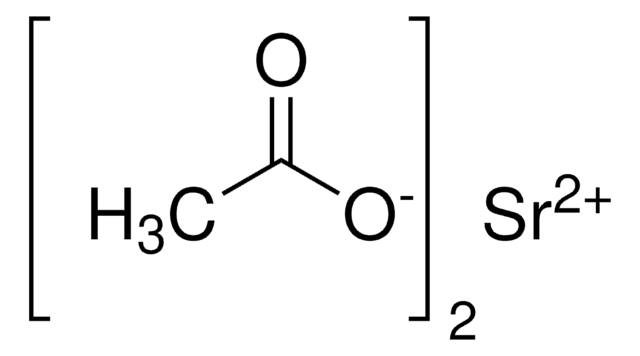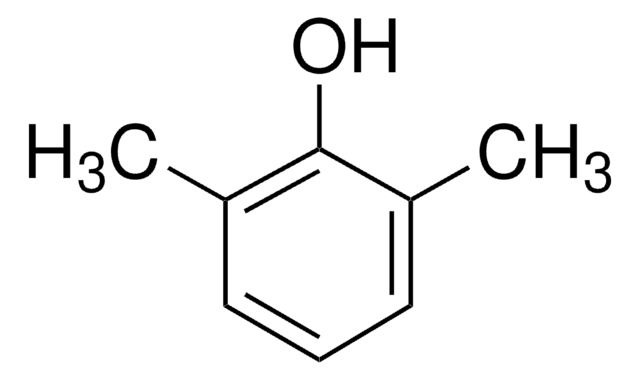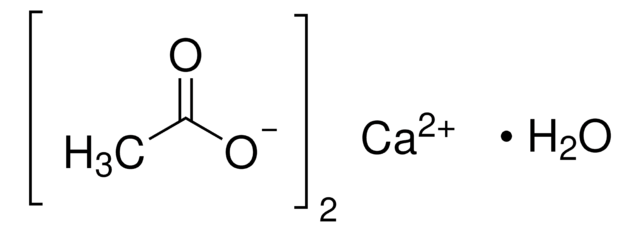437883
Strontium acetate
99.95% trace metals basis
Synonym(s):
Strontium diacetate
Sign Into View Organizational & Contract Pricing
All Photos(2)
About This Item
Linear Formula:
(CH3CO2)2Sr
CAS Number:
Molecular Weight:
205.71
EC Number:
MDL number:
UNSPSC Code:
12352103
PubChem Substance ID:
NACRES:
NA.23
Recommended Products
Quality Level
Assay
99.95% trace metals basis
form
powder
reaction suitability
core: strontium
impurities
~4% water
SMILES string
CC(=O)O[Sr]OC(C)=O
InChI
1S/2C2H4O2.Sr/c2*1-2(3)4;/h2*1H3,(H,3,4);/q;;+2/p-2
InChI key
RXSHXLOMRZJCLB-UHFFFAOYSA-L
Looking for similar products? Visit Product Comparison Guide
Application
Precursor to promising candidate materials for superconductor wire.
Storage Class Code
11 - Combustible Solids
WGK
WGK 3
Flash Point(F)
Not applicable
Flash Point(C)
Not applicable
Personal Protective Equipment
dust mask type N95 (US), Eyeshields, Gloves
Choose from one of the most recent versions:
Already Own This Product?
Find documentation for the products that you have recently purchased in the Document Library.
Customers Also Viewed
Lee, B.I. et al.
Physica C, 226, 377-377 (1994)
D Cummins
The Journal of clinical dentistry, 22(4), 97-99 (2011-01-01)
This paper briefly discusses recent scientific and clinical research validating the effectiveness of a toothpaste containing 8.0% arginine and calcium carbonate, known as Pro-Argin technology, including clinical evidence for the superior efficacy of this toothpaste versus a potassium-based desensitizing toothpaste.
Charles R Parkinson et al.
The Journal of clinical dentistry, 22(3), 74-81 (2011-09-13)
The objective of this study was to evaluate the relative level of dentin tubule occlusion and dentin mineralization conferred by a 5% w/w calcium sodium phosphosilicate (45S5)/1450 ppm fluoride toothpaste in comparison to a range of commercial toothpastes reported to
N X West et al.
Journal of clinical periodontology, 24(4), 209-215 (1997-04-01)
A considerable number of varied agents are apparently effective in the treatment of dentine hypersensitivity. In particular, the literature supports the efficacy of strontium, potassium and fluoride containing toothpastes. This study was a double-blind, randomised, parallel group comparison of three
N C A Claydon et al.
The Journal of clinical dentistry, 20(5), 158-166 (2009-11-12)
The aim of these clinical studies was to evaluate an in situ dentine tubule occlusion model, and to determine the occluding effect from novel occluding agents on patent dentine tubules compared to a positive control (8% strontium acetate--Sensodyne Mint) and
Articles
Three approaches generate white light, including LED-based down-conversion for broader applications.
Our team of scientists has experience in all areas of research including Life Science, Material Science, Chemical Synthesis, Chromatography, Analytical and many others.
Contact Technical Service










